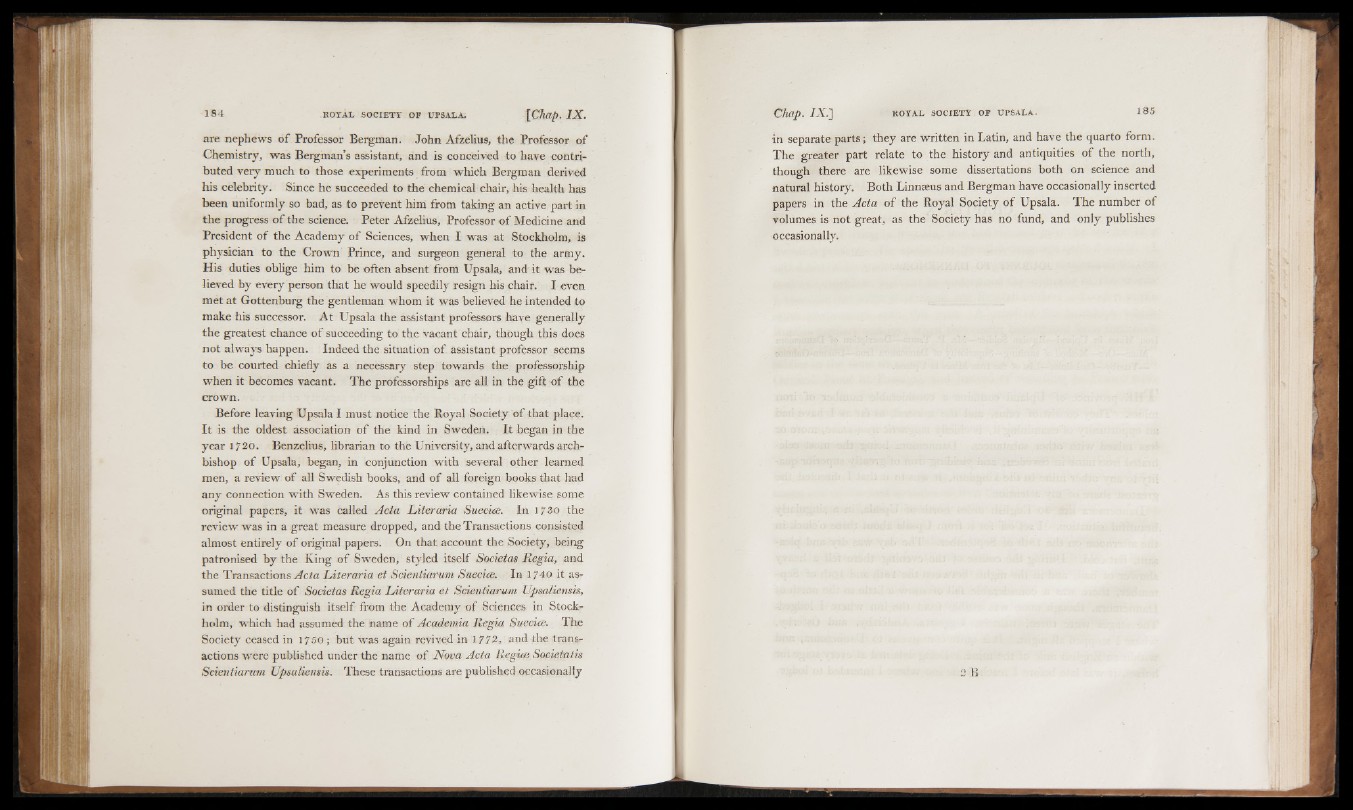
are nephews o f Professor Bergman. John Afzelius, the Professor of
Chemistry, was Bergman’s assistant, and is conceived to have contributed
very much to those experiments from which Bergman derived
his celebrity. Since he succeeded to the chemical chair, his health has
been uniformly so bad, as to prevent him from taking an active part in
the progress o f the science. Peter Afzelius, Professor o f Medicine and
President of the Academy of Sciences, when I was at Stockholm, is
physician to the Crown Prince, and surgeon general to the army.
His duties oblige him to be often absent from Upsala, and it was believed
by every person that he would speedily resign his chair. I even
met at Gottenburg the gentleman whom it was believed he intended to
make his successor. A t Upsala the assistant professors have generally
the greatest chance of succeeding to the vacant chair, though this does
not always happen. Indeed the situation o f assistant professor seems
to be courted chiefly as a necessary step towards the professorship
when it becomes vacant. The professorships are all in the gift o f the
crown.
Before leaving Upsala I must notice the Royal Society of that place.
It is the oldest association of the kind in Sweden. It began in the
year 1720. Benzelius, librarian to thè University, and afterwards archbishop
of Upsala, began, in conjunction with several other learned
men, a review of all Swedish books, and o f all foreign books that had
any connection with Sweden. As this review contained likewise some
original papers, it was called Acta Literaria Suecice. In 1730 the
review was in a great measure dropped, and the Transactions consisted
almost entirely of original papers. On that aecount the Society, being
patronised by the King of Sweden, styled itself Socktas Regia, and
the Transactions Acta Literaria el Sdentiarum Suecice. In 1740 it assumed
the title o f Sodetas Regia Literaria et Sdentiarum Upsa/iensis,
in order to distinguish itself from the Academy o f Sciences in Stock-
hcdm, which had assumed the name o f Academia Regia Suecice. The
Society ceased in 1750 ; but was again revived in 1772, and the transactions
were published under the name of Nava Acta Regice Societatis
Sdentiarum Upsaliensis. These transactions are published occasionally
in separate parts; they are written in Latin, and have the quarto form.
The greater part relate to the history and antiquities of the north,
though there are likewise some dissertations both on science and
natural history. Both Linnseus and Bergman have occasionally inserted
papers in the Acta of the Royal Society of Upsala. The number of
volumes is not great, as the Society has no fund, and only publishes
occasionally.